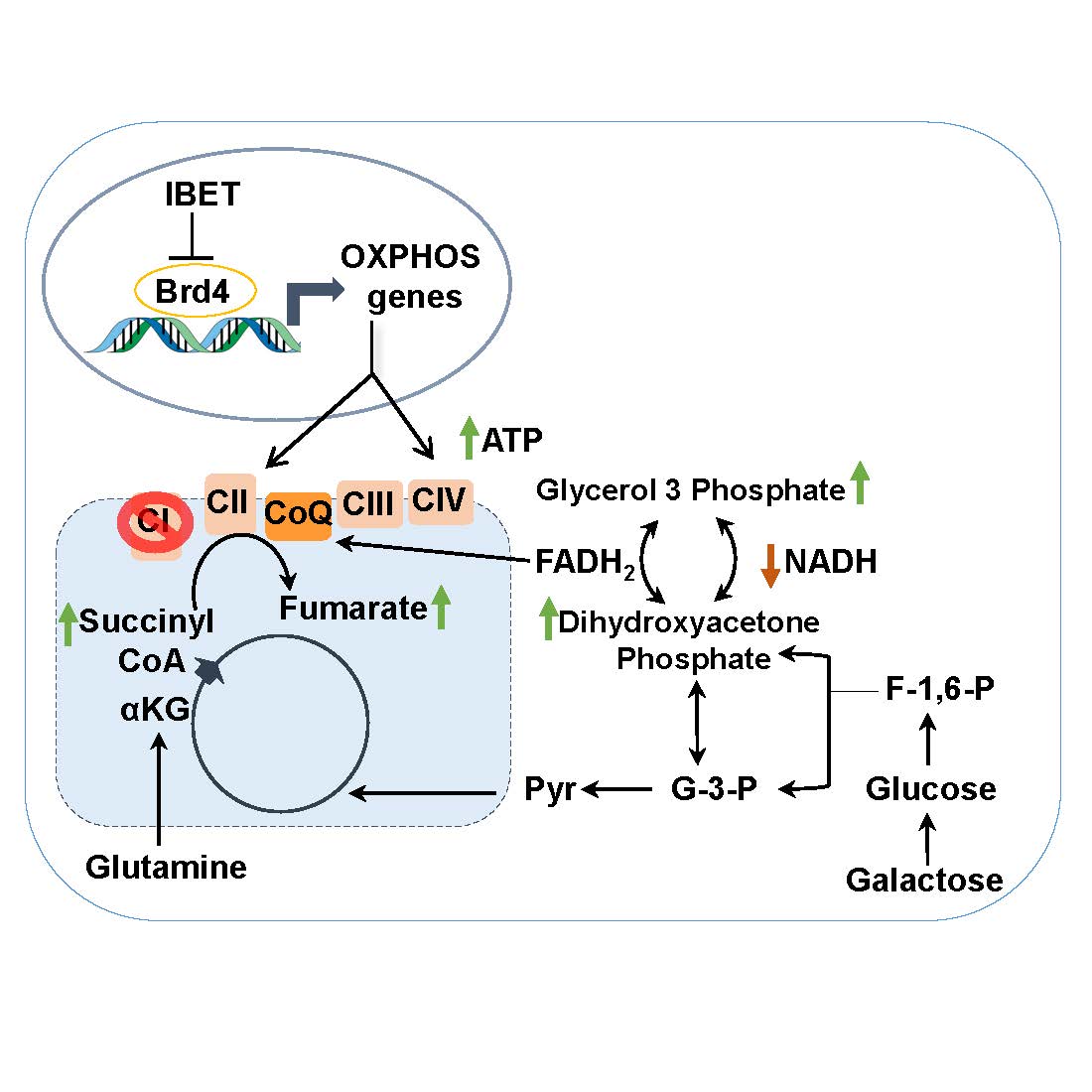
Mutations in mitochondrial proteins (either nuclear or mitochondrial-encoded) cause bioenergetic failures observed in mitochondrial diseases. Rescue of these bioenergetic defects constitutes a feasible strategy to prevent cellular deterioration that leads to cell death. New work from the Puigserver lab, published in Molecular Cell (see also the Preview in the same issue), reports that bromodomain inhibition or loss of Brd4 correct bioenergetic deficiency caused by mitochondrial disease complex I mutations. Using chemical and genome-wide CRISPR editing screens in complex I trans-mitochondrial hybrids cells, they find that chemical inhibition or loss of Brd4 rescue cell death caused by growth under conditions requiring oxidative phosphorylation for survival. Mechanistically, Brd4 controls a set of mitochondrial genes that bypass complex I mutations rewiring the electron transfer chain through complex II. These studies provide a metabolic/energetic strategy to overcome cellular failure caused by defects in mitochondrial complex I.